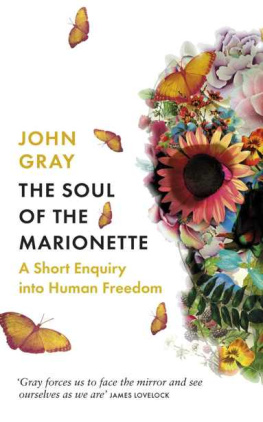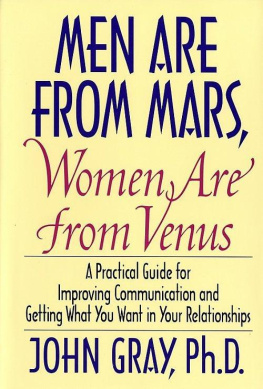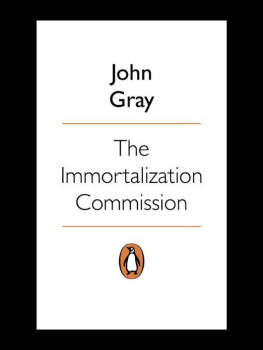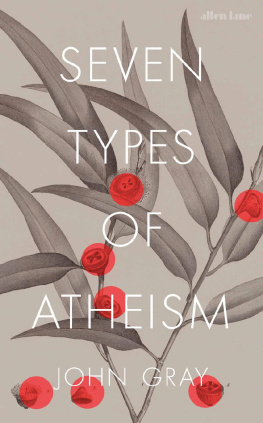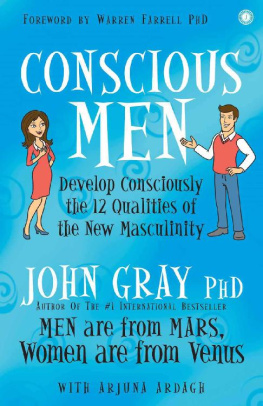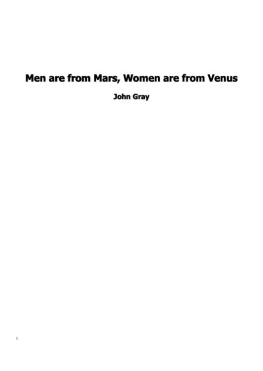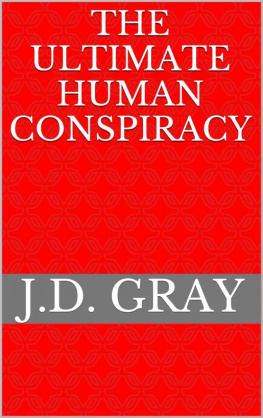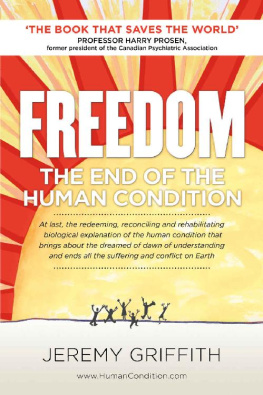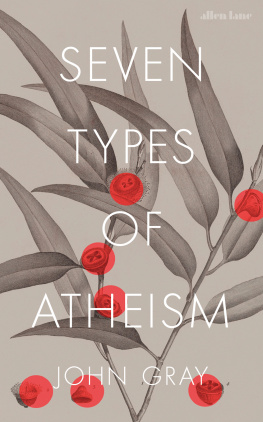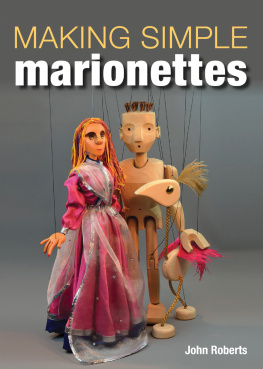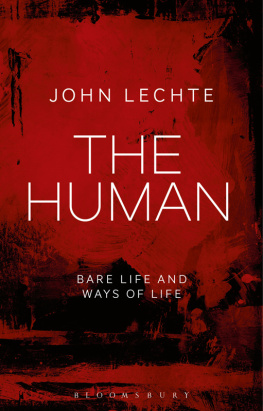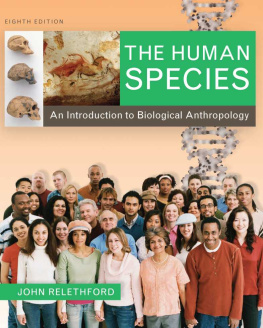John Gray
THE SOUL OF THE MARIONETTE
A Short Inquiry into Human Freedom
Contents
grace will be most purely present in the human frame that either has no consciousness or an infinite amount of it, which is to say either in .
Heinrich von Kleist, The Puppet Theatre
I mean, after all: you have to consider were only .
Philip K. Dick, The Three Stigmata of Palmer Eldritch
1 The Faith of Puppets
In the first centuries of our era, the Gnostics disputed with the Christians. They were annihilated, but we can imagine .
Jorge Luis Borges, A Defense of Basilides the False
THE FREEDOM OF THE MARIONETTE
A puppet may seem the embodiment of a lack of freedom. Whether moved by a hidden hand or pulled about by strings, a puppet has no will of its own. All of its movements are directed by the will of another a human being who has decided what the puppet will do. Entirely controlled by a mind outside itself, a puppet has no choice in how it lives.
This would be an unbearable situation, if it were not for the fact that a puppet is an inanimate object. In order to feel a lack of freedom you must be a self-conscious being. But a puppet is a thing of wood and cloth, a human artefact without feeling or consciousness. A puppet has no soul. As a result, it cannot know it is unfree.
For Heinrich von Kleist, on the other hand, puppets represented a kind of freedom that human beings would never achieve. In his essay The Puppet Theatre, first published in 1810, the German writer has the narrator, wandering through a city park, meeting Herr C., the recently appointed first dancer at the Opera. Noticing him on several occasions at a puppet theatre that had been erected in the towns market square, the narrator expresses surprise that a dancer should attend such little burlesques.
Replying, Herr C. suggests that a dancer could learn a great deal from these puppet shows. Arent marionettes controlled from above by puppeteers often extremely graceful in their movements as they dance? No human being can match the marionette in effortless grace. The puppet is:
incapable of affectation. For affectation occurs, as you know, whenever the soul is situated in a place other than a movements centre of gravity. Since the puppeteer, handling the wire or the string, can have no point except that one under his control, all the other limbs are what they should be: dead, mere pendula, and simply obey the law of gravity; an excellent attribute that you will look for in vain among the majority of our dancers these puppets have the advantage of being resistant to gravity. Of the heaviness of matter, the factor that most works against the dancer, they are entirely ignorant: because the force lifting them into the air is greater than the one attaching them to the earth Marionettes only glance the ground, like elves, the momentary halt lends the limbs a new impetus; but we use it to rest on, to recover from the exertion of the dance: a moment which clearly is not dance at all in itself and which we can do nothing with except get it over with as quickly as possible.
When the narrator reacts with astonishment to these paradoxical assertions, Herr C., taking a pinch of snuff, remarks that he should read the third chapter of Genesis attentively. The narrator grasps the point: he is perfectly well aware of the damage done by consciousness to the natural grace of a human being. But still he is sceptical, so Herr C. tells him the story of how he had fenced with a bear. A practised swordsman, he could easily have pierced the heart of a human being; but the animal, seemingly without any effort, avoided any harm:
Now I tried a thrust, now a feint, the sweat was dripping off me: all in vain! Not only did the bear, like the foremost fencer in the world, parry all my thrusts; when I feinted no fencer in the world can follow him in this he did not even react: looking me in the eye, as though he could read my soul in it, he stood with his paw lifted in readiness and when my thrusts were not seriously intended he did not move.
Humans cannot emulate the grace of such an animal. Neither the beast nor the puppet is cursed with self-reflective thought. That, as Kleist sees it, is why they are free. If humans can ever achieve such a state it will only be after a transmutation in which they become infinitely more conscious:
just as two lines intersecting at a point after they have passed through an infinity will suddenly come together again on the other side, or the image in a concave mirror, after travelling away into infinity, suddenly comes close up to us again, so when consciousness has, as we might say, passed through an infinity, grace will return; so that grace will be most purely present in the human frame that has either no consciousness or an infinite amount of it, which is to say either in a marionette or in a god.
The dialogue concludes:
But, I said rather distractedly, should we have to eat again of the Tree of Knowledge to fall back into the state of innocence?
Indeed, he replied; that is the final chapter in the .
Kleists essay was one of the last things he wrote. Born into the Prussian military caste in 1777, he was temperamentally unsuited to any kind of conventional career. Pressed by his family to join the civil service, he saw himself as a writer but struggled to produce anything that satisfied him, travelling here and there across Europe, burning what he had written. At one point, seeming to have given up the struggle, he attempted to join Napoleons army as it was preparing to invade England. Undoubtedly a writer of genius, he left seven plays, eight extraordinary stories and a number of essays and letters, and may have written a novel he destroyed before committing suicide in 1811. Congenitally restless, he could not find a place in the world.
With its teasingly enigmatic dialogue, the essay upsets everything modern humankind believes about itself. How could a puppet a mechanical device without any trace of conscious awareness be freer than a human being? Is it not this very awareness that marks us off from the rest of the world and enables us to choose our own path in life? Yet as Kleist pictures it, the automatism of the puppet is far from being a condition of slavery. Compared with that of humans, the life of the marionette looks more like an enviable state of freedom.
The idea that self-awareness may be an obstacle to living in freedom is not new. It has long been suspected that the ordinary mode of consciousness leaves human beings stuck between the mechanical motions of the flesh and the freedom of the spirit. That is why, in mystical traditions throughout history, freedom has meant an inner condition in which normal consciousness has been transcended.
In modern thinking freedom is not much more than a relationship between human beings. Freedom in this sense may come in a number of varieties. There is the freedom that consists in an absence of human obstacles to doing what you want or may come to want, sometimes called negative freedom; the kind that implies not just an absence of impediments, but acting as a rational human being would act; and the sort that you exercise when you are a member of a community or a state that determines how it will be governed. For Kleist and others who have thought like him, however, freedom is not simply a relationship between human beings: it is, above all, a state of the soul in which conflict has been left behind.

